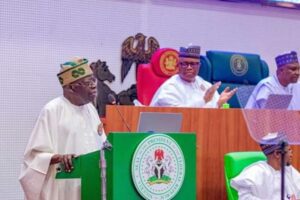COVID-19: UNILORIN may adopt virtual convocation, teaching – Management
The University of Ilorin, on Monday said it might adopt virtual convocation for the graduates as a safety protocol against the spread of the Coronavirus COVID-19 pandemic.
The Deputy Vice-Chancellor (Academic) of the university, Prof. Sylvia Malomo, told journalists in Ilorin that as long as the pandemic persisted, the university had no choice but to adopt that form of convocation.
“The university may adopt the virtual method since government prohibits large concentration of people on a particular location, in keeping with the safety protocols of COVID-19,” she said.
Malomo said that institution would also adopt virtual teachi g and learning method to complete the 2019/2020 academic session.
“The university management has committed enormous resources to the development of infrastructure to enhance the effective delivery of the envisaged virtual teaching and learning.
“Students will be taught virtually and will also be intermittently evaluated online to determine the level and quality of knowledge they are receiving.
“This will also determine the desirability or otherwise of further usage of the virtual method of teaching and learning,” she said.
According to her, the university is striving to ensure that it covers lost grounds due to the rampaging coronavirus pandemic and the strike by the Academic Staff Union of Universities (ASUU).
She explained that all the academic staff of the university had been trained on the effective use of online teaching method.
She added that the training had been replicated at faculty and departmental levels to ensure that everyone involved was properly empowered for efficient service delivery.
The deputy vice-chancellor said she was optimistic that students of the institution would adapt to the new method.
Malomo noted that secondary school students across the country, successfully used the method at the peak of the pandemic.
She expressed satisfaction with the level of students’ cooperation with the university management on the plan for virtual teaching and learning.
She said the leadership of the university’s Students Union Government had shown sufficient cooperation on the efforts of the university management to ensure hitch-free resumption of academic activities.
Malomo also disclosed that the concerned authorities had opened discussion with telecommunication service providers on the plan.
She said the discussion was on how to give the students some discounts on the cost of data which they were likely to buy in greater quantities.
The deputy vice-chancellor also assured all the students with “special needs” that they would be taken care of, to ensure that they benefited maximally.
She urged parents/guardians to provide their children/wards with the gadgets, and appealed to corporate organisations and wealthy individuals to assist the less privileged by providing them with such materials.




